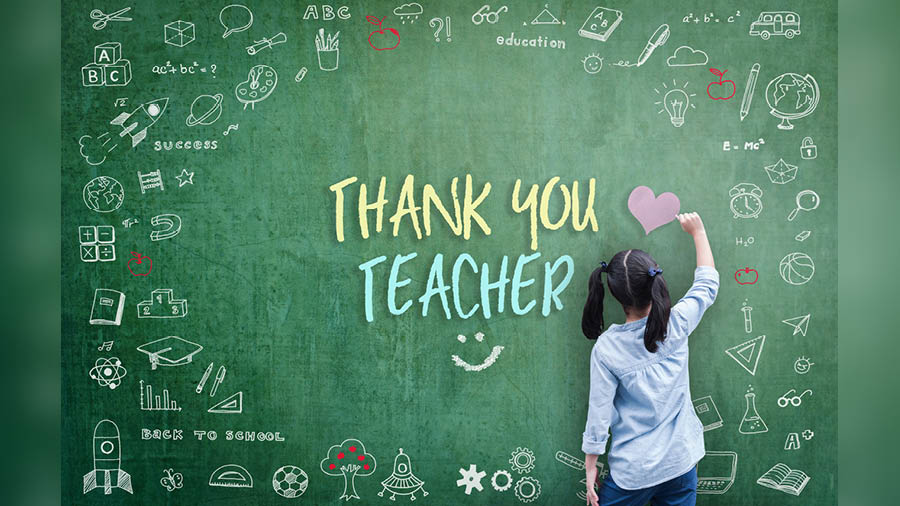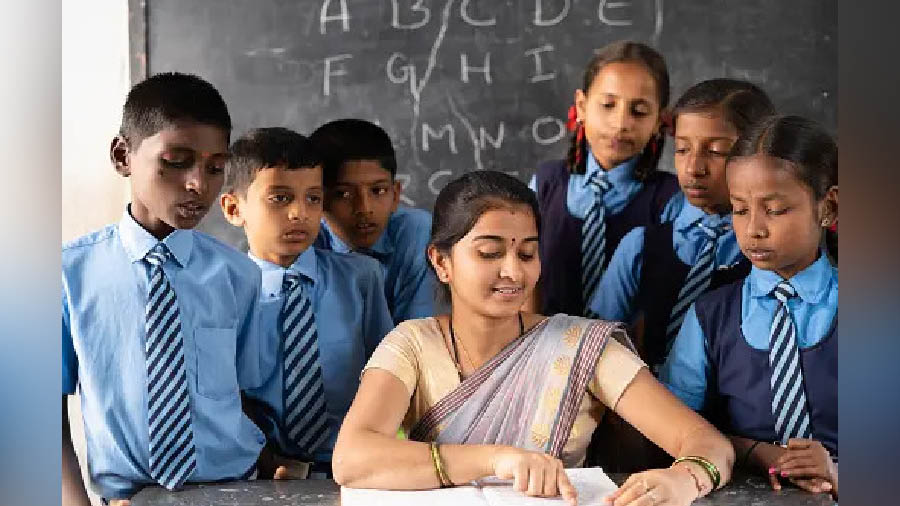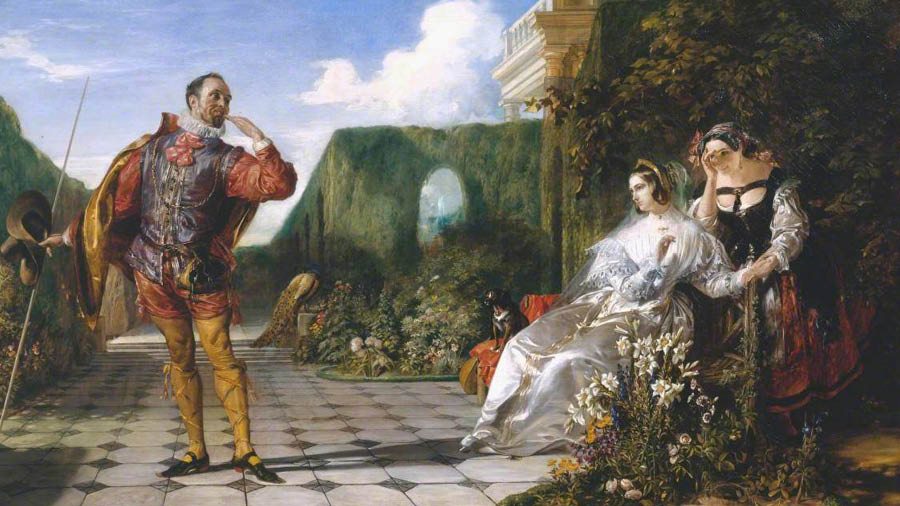
The best teachers do not have all the answers, but they ask the right questions
Don't Miss
On Teachers’ Day, this MK writer recounts why his favourite teachers focused on how, rather than what, to think
 |
| How many of our teachers have impacted our lives beyond the classroom?: Shutterstock |
PRIYAM MARIK | TT | 05.09.23 : Nothing that is worth knowing can be taught. Or so believed Oscar Wilde, who also felt that one can never be overeducated. Never shy of offering an aphorism (or a paradox) at the altar of truth, Wilde nonetheless reveals something that I have come to relate to over time. That the most important things in life — kindness, courage, compassion and the like — arise from within. While role models are useful, only we can truly identify and nurture what is best in us. Having said that, the process of identification and nurturing becomes a whole lot easier if we can find the right guidance, one that is usually meant to come from teachers.
In theory, anybody can teach. In practice, very few actually can. If you are someone who has already completed your formal education (the informal one never ends!), you must have been taught by at least 50 different teachers (a conservative estimate). How many of them have impacted you beyond enabling you to complete your syllabi and (in most cases) replicate your class notes in your exam sheets? How many of them have helped you discover or change something fundamental about yourself? How many of them have made you realise that good teaching is about how, not what, to think? In my case, the answer is three.
The secret to wielding authority well is knowing when to take it away
 |
| Good teaching is as much about managing ideas as people: Unsplash |
Most Indian schools are a classic case of one-way traffic. Information flows from teachers to students without any meaningful intellectual interrogation. The two schools I went to were no different, where even the teachers I liked seemed more interesting outside the classroom than inside it. All but one. When I was in the ninth standard, my class teacher was a woman in her mid to late 20s, whose specialisation was in science and maths. While her subject expertise was impressive without being memorable, it was how she behaved with the students that stood out for me.
At a time when several teachers would take pride in being intimidating and unapproachable (one of whom had once slapped a friend of mine after he had committed the sin of asking about homework), my class teacher knew how to empathise with teenagers. She never raised her voice, lost her cool or made me or my classmates feel ill at ease. During lunch breaks, aware of budding romances in class, she would quietly leave the room to give space to young hearts. The official school policy was that boys and girls could not sit next to each other!
Watching her navigate her role, I internalised two lessons. First, being a good teacher is as much about managing people as ideas. Second, the secret to wielding authority well is knowing when to take it away.
Less is more
 |
| This writer’s professor in college taught him how comedies, like ‘Twelfth Night’, carry the “infinite sadness of life”: Wikimedia Commons |
When I arrived in college to study English literature, I found myself at the mercy of many professors who were strict adherents of semantic solipsism. In other words, their lectures were more about rhetorical flourishes than literary revelations. However, in the midst of being bombarded by “hermeneutical frameworks” and Shakespearean theories not known to Shakespeare himself, I found my “rockstar”. I say “rockstar” because, for many years, he used to teach as well as sing, before his voice only had room for the former.
When this professor taught my class Twelfth Night, he showed how comedy, more than tragedy, carries the “infinite sadness of life”. When he taught us T.S. Eliot’s Preludes, he explained the technique of Eliotian defamiliarisation by switching off the lights and drawing the curtains (it was a surreal experience!). When he taught us one of John Steinbeck’s finest short stories, “The Chrysanthemums”, he unravelled the tenuous relationship between human agency and intimacy.
I was not bored for a minute in his classes. But his biggest contribution to my life came one spring morning after class. Intent on finding out how I could improve my answers, I went up to him, expecting a five-minute masterclass on writing. Instead, he uttered three words — “less is more” — smiled, and went his merry way. Initially, I was bamboozled. Was he joking? Was it some kind of a puzzle? Was I dumb?
It took me a few months, but I eventually grasped his message. Good writing, according to my professor, was about economy and precision. No extra words, no extra thoughts and certainly no rhetorical flourishes (unless one was writing on W.B. Yeats!). As I matured as a writer and person, I came to terms with how “less is more” applies to other aspects of life, too. From furniture to fashion to football, I started admiring minimalists, even if I could not become one myself.
The difference between awareness and understanding
 |
| The purpose of education is to know how much we do not know and find a way to articulate our ignorance: Unsplash |
During my Master’s in the UK, I received a culture shock. The essential axiom of Indian education — anything that is not compulsory is forbidden — was turned on its head. Here were university volunteers asking strangers “are you alright, can I help you?” and university professors ending their arguments with the refrain: “Does this make sense?”
In spite of these ornamental alterations, the education I got in England was also catered, for the most part, to the lowest common denominator. With a heavily international student pool, dumbing things down was the university’s way of ensuring “epistemic equality”. Thankfully, my dissertation mentor, a middle-aged woman from East Europe (she never told us where exactly, though), agreed (with me) that spending a fortune on a degree that did not examine one’s thinking was not worth it.
Hence, during my thesis, she ploughed through my blind spots with grace and gumption. My topic was connected to governmental propaganda in Indian news media, which meant that I had a lot of material to deal with. Even though, as an Indian, I was far more aware of the nuts and bolts of my country, my mentor was much better equipped to understand them. Every time I made an assertion about India, she encouraged me to dive deeper, to keep questioning.
Three months of rigorous conversations with her taught me the most vital lesson of my academic life — the best teachers do not have all the answers, but they ask the right questions. The purpose of education is not to emerge as an insufferable know-it-all (sorry, Hermione Granger!), but to know how much we do not know and find a way to articulate our ignorance. Looking back, I figured that all my favourite teachers, including the aforementioned ones, championed a similar outlook themselves. For them, teaching was always about the curiosity of questions over and above the certitude of answers.
In an era of content creators, we need teachers who are context creators
When I look around at the informational ecosystem most of us inhabit today, I am alarmed at the precarity of our pedagogy. So much of what is taught in institutions is knowledge devoid of wisdom. So much of what students apparently learn, they definitely forget. With Artificial Intelligence (AI) galloping along and content creators (both human and bots) flooding the internet with information, it is not long before the regular teacher is reduced to an afterthought.
Most youngsters today spend far more time on Instagram than with their teachers. A typical minute on social media entails watching a cute cat playing with themself, the latest coup in the Middle East, an influencer flexing their muscles (sometimes quite literally), news about some social travesty, cheap food at an expensive cafe, and another cute cat playing with themself or, better still, a baby. By the time we scroll past the last example of feline fabulousness, chances are that we can no longer recall what happened in the Middle East. Or that we no longer wish to. With little to no adequate context around which to consume our plethora of content, we are lacking what it takes to make sense of the world around us.
This is where a good teacher comes in. Whether institutionally or otherwise, we need teachers who are context creators. People who can establish meaning and relevance behind events and ideas, who can extend our attention span to accommodate nuance. Not on Instagram, but in the classroom. When the right context is laid down, allowing minds to glean insight from information, students can effectively start learning on their own. Once such a day arrives, everything that is worth knowing need not be taught.



0 Response to " The best teachers do not have all the answers, but they ask the right questions"
Post a Comment
Disclaimer Note:
The views expressed in the articles published here are solely those of the author and do not necessarily reflect the official policy, position, or perspective of Kalimpong News or KalimNews. Kalimpong News and KalimNews disclaim all liability for the published or posted articles, news, and information and assume no responsibility for the accuracy or validity of the content.
Kalimpong News is a non-profit online news platform managed by KalimNews and operated under the Kalimpong Press Club.
Comment Policy:
We encourage respectful and constructive discussions. Please ensure decency while commenting and register with your email ID to participate.
Note: only a member of this blog may post a comment.